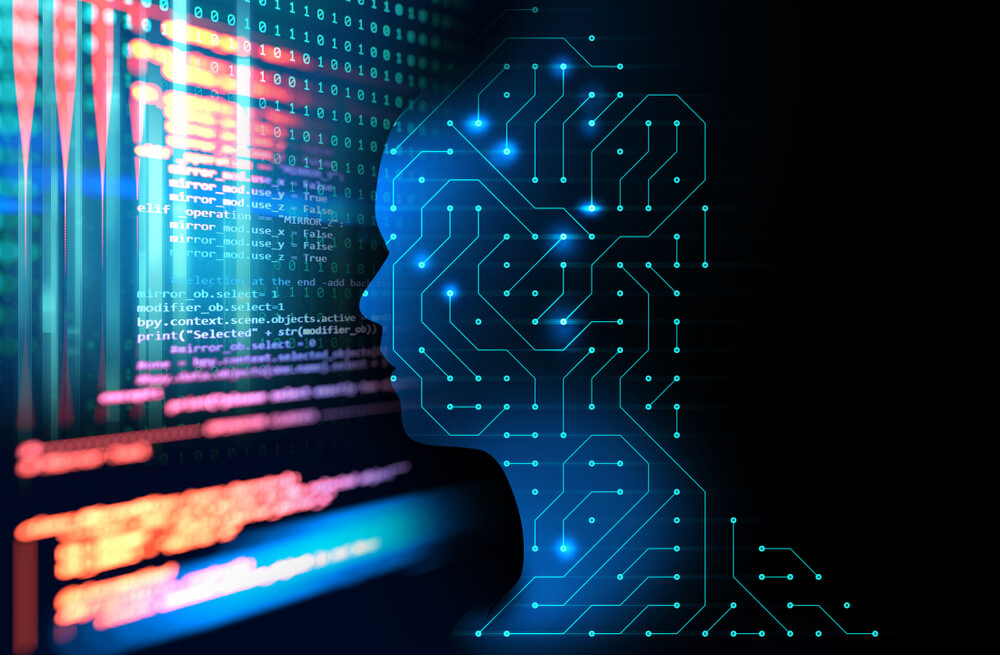Cyber security has evolved along with technology and information systems and has become a crucial aspect of the contemporary world. However, the development of artificial intelligence (AI) opens up new ideas for overcoming cyber security difficulties.
This article examines how AI technologies are impacting cybersecurity and how it may be a powerful ally in the fight against online dangers.
Topics covered in this article:
1. Overview of AI and research on AI
2. Machine learning and cyber security
3. Cyber security and artificial intelligence
4. Specific cybersecurity tasks that AI can perform
An overview of artificial intelligence
The study of computer science known as artificial intelligence (AI) aims to create models and algorithms that will allow computer systems to imitate human intelligence.
We all have some basic understanding of what AI can do – from driving cars, leveraging computer vision, to speech recognition and image recognition. There’s so much AI that can help with this that sometimes its use cases sound like they’re straight out of science fiction.
However, the term artificial intelligence has become so common in everyday conversations today because it is becoming more and more applicable in everyday life and normal business. And cyber security is such a critical aspect of business where artificial intelligence can play a very significant role.
We will begin by sketching the establishments that specialize in researching the basic ideas of artificial intelligence and its functions, and then machine learning and its effects on cyber security.
Research on artificial intelligence
Several renowned university research institutions and commercial laboratories are conducting AI research at a groundbreaking pace. Some of the famous ones are:
- Massachusetts Institute of Technology: MIT is one of the leading universities for artificial intelligence research. Distinguished professors and scientists who have made important contributions to the advancement of artificial intelligence call it home.
- Carnegie Mellon University in Pittsburgh: This institution is known for its work in robotics and artificial intelligence. It creates brand new machine learning techniques and algorithms to address challenging cybersecurity problems.
- Google Research: Google has a dedicated research division that does a lot of artificial intelligence research. It works with highly qualified researchers who introduce the latest technology to the cyber security industry.
- Microsoft Research: The company’s research division is engaged in artificial intelligence research. It Tester Developing smart security solutions and new ways to defend against online attacks.
It is important to remember that most AI research is published in English. If not, then it translates into a form of English that is widely understood to be accessible to scientists everywhere. Understanding and using the principles of artificial intelligence and its effects on cyber security requires mastery of English. If you plan to go through this in person, go ahead Online English lessons in mind.
Machine learning and how it works in cyber security
A subset of machine learning artificial intelligence allows computer systems to glean information from data and use it to make decisions. Machine learning is essential for detecting and avoiding cyber attacks in the context of cyber security. Let’s see how it works and can be useful for security teams:
- Machine Learning can understand and assist in data collection and preparation; selecting and fine-tuning machine learning algorithms; training the model on training data; and evaluating its performance on test data.
- Network traffic analysis, malware detection, anomaly detection, and potential threat detection are all done using classification and detection methods. Based on previous data, machine learning models can be trained to identify trends in activity and decipher questionable conduct.
- Collecting and analyzing big data is a critical component of hunting down cyber security threats. Machine learning can process and analyze huge data sets to find hidden links and patterns that may indicate dangers or weaknesses. It allows you to anticipate potential threats and attacks, defeat them in time and strengthen your defenses by upgrading them in time.
The effectiveness and accuracy of threat detection and response can be greatly improved by machine learning in cybersecurity.
The lack of different data, validity adaptation and the complexity of interpreting the model results are only a small part of the potential limitations and difficulties to be considered.
Therefore, for effective protection against cyber attacks, supervised learning and the development of machine learning algorithms are essential.
The growing importance of cyber security
Protection of information from risks related to the use of computer systems and networks is at the center of the field of cyber security.
Individuals and companies are more vulnerable than ever to multiple threats in today’s information culture, including ransomware attacks, malware attacks, data theft and other forms of cybercrime.
This explains the growing importance of cyber security. To prevent privacy breaches, financial losses and data breaches, effective network and data security is essential.
The impact of AI on cyber security
Cyber security is significantly influenced by artificial intelligence, which offers new tools to detect, analyze and prevent online threats.
Artificial intelligence can evaluate massive amounts of data, detect anomalies, and identify suspicious patterns in the threat detection space, which helps identify unrecognized or sophisticated attacks. -1.jpg?width=400&height=267&name=132911721_m_normal_none%20(1)-1.jpg)
In addition to analyzing and correctly classifying the network data, identifying malware and predicting possible weaknesses, artificial intelligence also helps protect against cyber attacks.
Successful applications of AI in cybersecurity include neural network-based algorithms for detecting phishing attacks and machine learning systems that can automatically identify new strains of malware.
However, there may also be risks and difficulties associated with the use of artificial intelligence in cyber security, such as the potential for attacks on artificial intelligence systems or incorrect results.
To effectively defend against cyberattacks, artificial intelligence and cybersecurity innovation must continue to advance.
Specific tasks performed by AI in cyber security
Many cyber security jobs are now performed by artificial intelligence, which improves the efficiency and accuracy of the defense mechanisms.
Here are some examples of specific tasks that AI can perform:
- Automatic vulnerability detection: To find potential vulnerabilities, AI may scan code and examine applications. It can automatically detect code vulnerabilities or misconfigurations, and help implement the necessary fixes. It helps in the early detection and prevention of cyber-attacks by seeing unusual data transfer patterns, DDoS attacks or attacker behavior.
- Attack prediction: To predict potential future attacks, the AI can examine attack data, including attack signatures and characteristics. This can allow you to implement containment measures against potential threats in a timely manner.
- Event response automation: Planning and response to cyber incidents Can be automated using artificial intelligence. AI can automatically evaluate event data, classify it based on severity, and then take the required action, such as blocking suspicious traffic or alerting a response. The information that AI generates can help build high optimization Response plans for cyber incidents for the organization.
These are just a few examples of cyber security related jobs that artificial intelligence is capable of completing. AI can automate security procedures, improve them, speed up response to threats and secure information more effectively.
final thoughts
In conclusion, the field of cyber security has been significantly affected by artificial intelligence. It is an essential tool for protecting information due to its ability to identify, assess and avoid cyber risks.
Artificial intelligence (AI) can scan massive amounts of data, detect anomalies and anticipate weaknesses, helping companies and individuals defend more quickly and effectively against attacks. Successful applications of AI in cyber security are already showing the promise and benefits of the technology.
In order to successfully overcome resistance and reach a high degree of cyber security maturity, it is essential to constantly advance the technology and the knowledge and abilities of the person in this field.
.jpg#keepProtocol)










